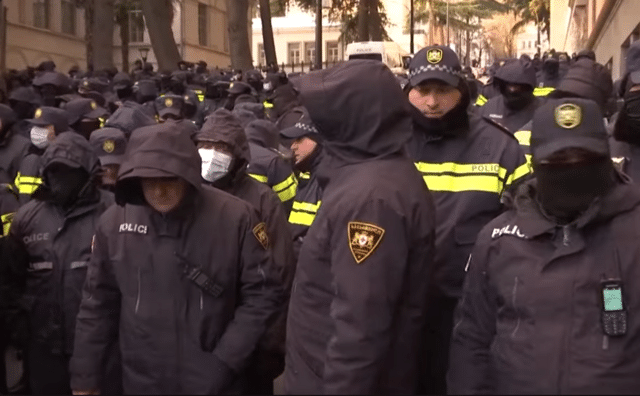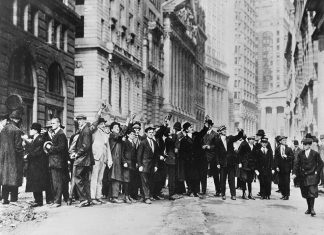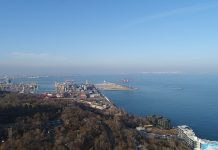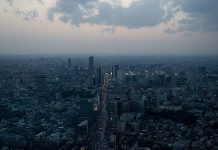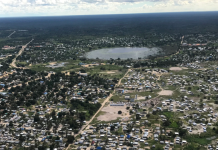Behind the political facade in Tbilisi, a silent struggle for the rule of law is taking place, where fear and arbitrariness reign among Georgian citizens and intellectuals.
Since the parliamentary election in Georgia on 26 October 2024, the country has been marked by rising authoritarian pressure, waves of protest and mounting international concern. More than 400 people were arrested in the first weeks after the vote—most of them during peaceful demonstrations against the disputed result.
Between 28 November and 6 December at least 435 people were detained, according to Transparency International Georgia; 372 received administrative fines or prison sentences and a further 26 were charged with criminal offences. Many detainees reported police violence, and more than 80 people were reportedly hospitalised, according to Amnesty International.
By mid-March 2025, more than 50 activists and demonstrators were still in custody. The arrests have since widened to include leading opposition politicians. In June several prominent figures—including Nika Melia, Irakli Okruashvili and Giorgi Vashadze—were imprisoned after refusing to appear before a parliamentary commission set up by the ruling Georgian Dream party.
The government has defended the arrests as lawful, but the European Commission, the Council of Europe and human-rights organisations have all sharply criticised the developments. Human Rights Watch warned as early as January 2025 of a “rapid erosion of democracy” in the country.
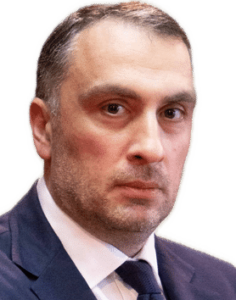
Geopolitica’s Caucasus- and Eurasia-expert Victor Kipiani is a well-known figure and political commentator in Georgia, heading the pro-Western think-tank GeoCase. He is also co-founder and senior partner at MKD Law, a respected law firm in Tbilisi. In this interview, he gives an update on the current situation in Georgia.
There are reportedly around 60 Georgian civil activists and politicians currently in prison on vague charges. What is the current state of the Georgian political environment?
The situation is dire. Of course, thank God there’s no shooting. That’s about it—when there is no proper state in place, you can’t feel secure. So, I think that a general feeling of scaredness has become widespread among some Georgians at this point.
You are a vocal critic of the current government and a well-respected pro-Western public intellectual in Georgian society. In December 2024, one of your colleagues at Geocase, Nikoloz Alavidze, was arrested but then released again. Do you fear for you own safety?
Thank you for the compliments. Hopefully that will not be the case, but you know that when things go wrong—let me put it very diplomatically and very softly—one can’t rely on the law anymore. Indeed, there is effectively no rule of law in Georgia, which is worrying,
Indeed, one can’t rely on law-enforcement agencies to stop acting inappropriately—with indiscriminate detentions and selective justice. There is no effective advocacy. In such conditions it’s hard to feel safe. Of course, it’s not Libya or North Koreabut it’s not much relief to make such comparisons.
So, what’s the end goal here for Georgian Dream?
Honestly, I don’t know. We keep asking ourselves the same thing: what exactly is the objective, and whose objective is it? My own aim is simple—to return to normalcy. Theirs, however, is far less clear: there are many possible interpretations and explanations, and it’s still uncertain which, if any, are workable, feasible, or even plausible.
But the bottom line is that Georgia is on the wrong track in every possible respect. Unfortunately, our society has been turned upside down in a short period of time. Those few but remarkable achievements that we have achieved as a people and the freedoms that we have enjoyed individually are largely gone now.
You say “get back to normalcy,” but how do you do get there?
There is no magic recipe, but in general it’s about keeping up the pressure on the authorities. It’s about continuing what many people are already doing here on the ground. Reliance on public support—the rejection of the current political status quo—is fortunately very strong here and very persistent. Those are the pressure points from inside. Then there are the pressure points from outside: ‘the process of naming and shaming’, as I frequently say.
After the elections in October last year, there were massive protests in the streets. What is the situation now?
Public protest isn’t constant; it’s hard to keep high-level outrage going every day, but that doesn’t lessen its impact. The momentum ebbs and flows, yet the underlying discontent—the opposition—remains. And by “opposition” I don’t mean only political parties; it also reflects a deep public sense of betrayal. People strongly reject what’s happening here.
Other factors also work in their favor. What plays into their hands is very strong propaganda and hybrid warfare, which are typical in our part of the world. Of course, they exist everywhere, but especially in our region. These issues act very much as tailwinds to these negative developments.
Georgian Dream was talking about banning the opposition or forbidding the opposition from running. How is that evolving?
They’re moving in that direction. Right now, a parliamentary commission is conducting what can only be described as bizarre investigations into various so-called crimes. Its aim is twofold: first, to petition the Prosecutor’s Office, claiming there is enough evidence to open criminal cases; and second, to petition the Constitutional Court, arguing that these actors have exceeded constitutional limits and should therefore be banned.
So, the governing party has able to gradually take control of the judiciary….
Absolutely; the judiciary is in their pockets. The proceedings that we’re witnessing these days are just a mockery of a proper judicial process. There’s no viable state in play; there are no viable institutions; it’s a sham.
Georgian Dream and its de facto patron, Mr. Ivanashvili, are very close to Russia. Are they planning to put Georgia firmly back into a Russian sphere of interest?
When you asked me earlier what the end goal is, this outcome could be one of them. I can’t be 100 percent sure, but it’s among the few viable options.
Most opinion polls show heavy support for joining the European Union—up to 70 percent. What do you make of this?
That seems to be the case, but there are big differences between these polls, and sometimes they are manipulated very strongly on a speculative basis. Each side of the aisle has its own opinion polls.
What do the other polls—the Georgian Dream sympathizers’ ones—say concerning these questions?
They yield different results because each poll uses its own wording, framing, reporting, and questions. It’s similar to Georgian media: depending on whom you support— which outlet, website, or platform you follow— you get a different picture. The same goes with sociology here: each of them reflects different realities.
There are no exceptions to this, and it’s part of a bigger picture. What’s happening here is not just about Georgia; it’s about more than Georgia. It’s about zones of influence, about all those developments that are happening around us—in the context of the war in Ukraine, in the context of the challenges the West is changing, – to name but few. I mean, we’re just one of the puzzles on the global chessboard.


